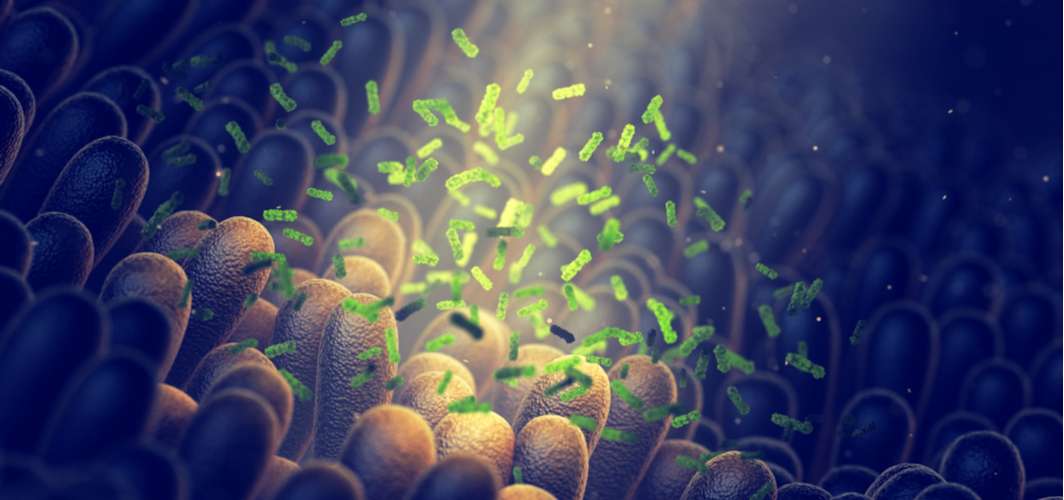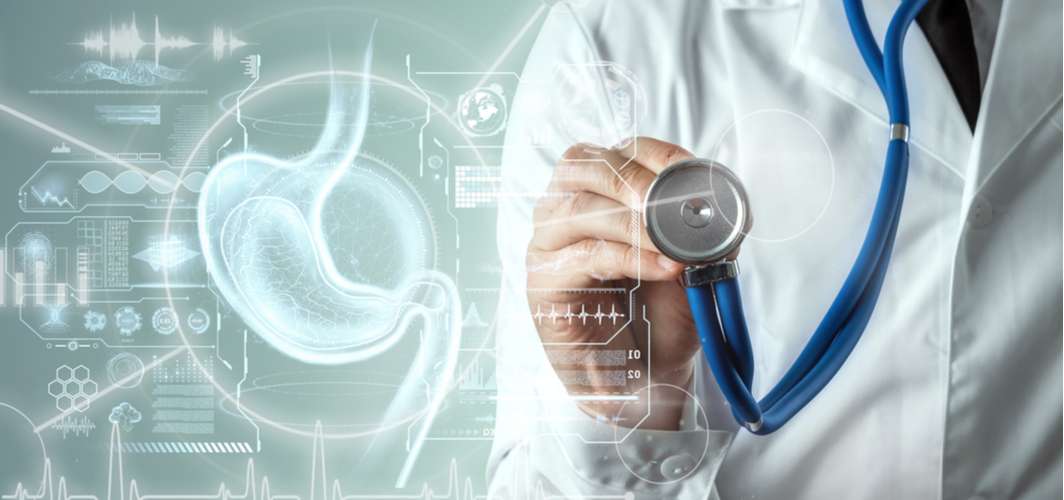Digestive Health
How the Gut Microbiome Works to Keep You Healthy
6 min read
By Apollo 24/7, Published on - 15 February 2021, Updated on - 03 October 2023
Share this article
0
22 likes

The human body is home to different kinds of microorganisms. Bacteria, viruses, and fungi are some of the microorganisms (or microbes) that reside in our bodies. It is believed that we have more of them inside our bodies than we have cells. Collectively, these microorganisms are referred to as the microbiome.
Most of these microorganisms exist in the digestive tract (or gut). The majority of them are good or even essential for health. However, there are some that are harmful, especially when they multiply. Medical experts say that maintaining the right balance between the ‘good’ and ‘bad’ microorganisms is essential for immunity, and overall physical and mental health.
What is gut microbiome?
The gut microbiome, also called gut flora, can be defined as the sum total of all the microorganisms, i.e. bacteria, viruses, protozoa, and fungi, and their collective genetic material found in the gastrointestinal tract. Most of the human microbiome is concentrated in the cecum, a ‘pocket’ in the large intestine. Combined, the microorganisms in the gut microbiome weigh nearly 2kg, which is roughly equal to the weight of the human brain.
Owing to its role in overall health, the gut microbiome is considered a virtual organ of the human body. However, within the gut microbiome, bacteria are perhaps the most studied microorganism. According to research, there are nearly 1,000 species of bacteria with 3 million genes in the gut microbiome. The total number of bacterial cells in the human body is close to 40 trillion, which is much more than the 30 trillion human cells.
The health of the gut microbiome, as well as that of the host individual, depends on a healthy balance (equilibrium) between “good bacteria” and “bad bacteria”. The “good” bacteria help keep your “bad” bacteria in check. The “good bacteria” multiply often in order to ensure that the unhealthy “bad bacteria” do not have any space to grow.
Role of the gut microbiome in health
The gut microbiome plays a major role in overall health right from the moment of birth. As we grow, the gut microbiome experiences diversification i.e. it begins to contain different kinds of microorganisms. Higher diversity in the gut microbiome is associated with better health outcomes.
The gut microbiome affects the key biological functions and overall health in several different ways.
-
Gut microbiome and digestive health
The gut microbiome has a direct impact on digestive (or gut) health. A balanced gut microbiome regulates gut health by digesting certain foods, communicating with the cells of the intestines, and reducing the likelihood of disease-causing bacteria from sticking to the walls of the intestines. An unhealthy imbalance in the gut microbiome can increase the risk of intestinal diseases like irritable bowel syndrome (IBS) and inflammatory bowel disease (IBD). Certain symptoms of IBS are often attributed to gut dysbiosis, a condition in which there is an imbalance of the microorganisms within the intestines.
-
Gut microbiome and immune health
The gut microbiome is involved in controlling the functioning of the immune system. By interacting with the immune cells, the gut microbiome can regulate the response of the immune system to an infection.
-
Gut microbiome and heart health
An increase in the number of certain unhealthy bacterial species in the gut microbiome can increase the risk of heart disease. These harmful bacteria are known to convert certain nutrients found in animal-based foods like red meat into a chemical that is used by the liver to produce TMAO (trimethylamine-N-oxide). TMAO is believed to contribute to the blockage of arteries by facilitating the accumulation of cholesterol in them, thereby increasing the risk of heart attack and stroke. Besides heart disease, excess TMAO can also increase the likelihood of developing chronic kidney disease.
-
Gut microbiome and obesity
Gut dysbiosis can increase the risk of weight gain and obesity. The condition may interfere with the signals from the brain when it comes to feeling starved or full. Researchers think that the gut microbiome has a link to the pituitary gland. The gland is responsible for making hormones that are associated with appetite. It is believed that pituitary gland can impact the balance of bacteria in the gut.
-
Gut microbiome and brain health
The gut microbiome is known to affect brain health in multiple ways. Firstly, certain types of bacteria in the gut microbiome can help in the production of chemicals in the brain. These chemicals are called neurotransmitters. Secondly, the gut is physically connected to the brain via nerves. As a result, the gut microbiome can affect the health of the brain by regulating the messages that are sent to the brain via these nerves. Researchers have also suggested a link between the gut microbiome and psychological disorders. Compared to healthy people, people with psychological disorders such as autism spectrum disorder, anxiety, and depression have different species of bacteria in their guts.
-
Gut health and blood glucose
Maintaining a healthy diversity of bacteria in the gut microbiome can help regulate blood glucose levels and reduce the risk of both type 1 and 2 diabetes. A study has found that a drop in diversity of the gut microbiome and an increase in the number of unhealthy bacterial species can affect the onset of type 1 diabetes in children.
Why focusing on the gut microbiome is essential?
Various studies have shown that having too much of certain types of bad bacteria in the gut microbiome can adversely affect the risk of developing the following conditions:
- Crohn’s disease
- Ulcerative colitis
- Irritable bowel syndrome (IBS)
- Obesity
- Heart disease
- Chronic kidney disease
- Autism
- Depression
- Diabetes
- Poor immune system
Therefore, it is important to focus on improving the balance and diversity of bacteria in the gut microbiome.
How to improve gut microbiome?
There are many scientifically supported and natural ways of improving the balance and diversity of the gut microbiome. Some of those include:
- Eat more probiotic foods such as yogurt, buttermilk, dark chocolate, fermented vegetables, etc.
- Increase intake of prebiotic foods such as whole grains, bananas, onion, garlic etc.
- Limit intake of sweets and artificial sweeteners
- Manage stress
- Avoid unnecessary intake of antibiotics
- Become physically active
- Get proper sleep
- Quit smoking
- Limit intake of animal-based foods such as meat, eggs and dairy products
Conclusion
Maintaining a healthy gut microbiome holds the key to better overall health. By getting aware of the things that adversely affect the gut microbiome and following the above lifestyle and dietary changes, individuals can improve the diversity and balance of their gut microbiome. Nevertheless, it is important to consult a physician before incorporating any drastic changes in lifestyle and diet.
Talk to a gastroenterologist if you have any questions related to digestive health.
You can also explore our range of probiotics to boost your digestive health.
Digestive Health
Leave Comment
Recommended for you

Digestive Health
The Difference Between Wheat Allergy, Celiac Disease, and Gluten Intolerance
These three major disorders are known to trigger unpleasant symptoms following intake of foods made using wheat.

Digestive Health
Constipation: 5 Common Causes That One Should Know About
Constipation is a common problem that can affect people of any age. While most constipation cases are mild and can be easily addressed with exercise and diet changes, some may require medical treatments.

Digestive Health
What Is the Gut-brain Connection?
The gut-brain connection refers to the physical and biochemical systems that link the gut and the brain together.
Subscribe
Sign up for our free Health Library Daily Newsletter
Get doctor-approved health tips, news, and more.
Visual Stories

Hidden Health Benefits in a Bowl of Salad
Tap to continue exploring
Recommended for you

Digestive Health
The Difference Between Wheat Allergy, Celiac Disease, and Gluten Intolerance
These three major disorders are known to trigger unpleasant symptoms following intake of foods made using wheat.

Digestive Health
Constipation: 5 Common Causes That One Should Know About
Constipation is a common problem that can affect people of any age. While most constipation cases are mild and can be easily addressed with exercise and diet changes, some may require medical treatments.

Digestive Health
What Is the Gut-brain Connection?
The gut-brain connection refers to the physical and biochemical systems that link the gut and the brain together.